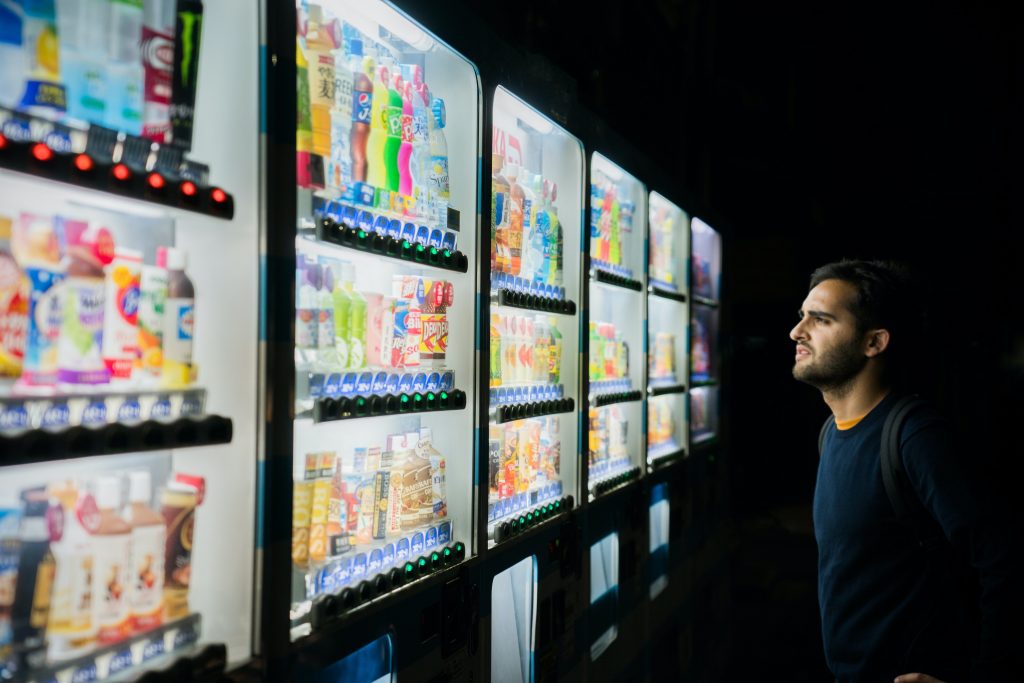This post is also available in Dutch.
Do you ever Google a healthful diet for your cat but end up scrolling through pet meme videos? You unintentionally do this because your attention is distracted by the pet videos that make you happy. Humans are attracted to rewarding cues in the environment, like memes, deviating from the actions we were actually planning to do. This is a hardwired bias that shapes our behavior automatically.
How often are you in autopilot mode?
We often find ourselves in autopilot mode, where our actions are easily driven by rewarding things in the environment and not by our own conscious thoughts. These pre-programmed biases (i.e., motivation to pursue rewards) are called Pavlovian biases, named by psychologist Ivan Pavlov. Pavlov researched salivation in dogs in response to food, finding that dogs salivated when hearing his footsteps even when there was no food.
Can we humans control ourselves better than dogs? No, we cannot. For instance, think of cola. You might automatically associate cola with famous athletes and singers because they were in the advertisements and probably wouldn’t associate cola with negative images, like prisoners. This bias exists because we are daily exposed to advertisements from companies wanting us to think positively about their products so that they sell more.
Read more about Pavlovian biases in a previous Donders Wonders blog
More dopamine = more Pavlovian bias?
Interestingly, some people are more vulnerable to Pavlovian biases. People that are more vulnerable to Pavlovian responses might have higher risks for developing many disorders, like addiction. What explains this individuality? A recent neuroscience study at the Donders Institute shows that vulnerability to Pavlovian biases can be explained by dopamine. Just like weight and height differences between people, dopamine production varies between individuals. Amount of dopamine production is also linked to a variety of cognitive functions, like motivation and the effort made for an action.
More short-term memory = more Pavlovian bias?
The same research study also asked whether Pavlovian bias is solely determined by dopamine. Using PET imaging to measure brain dopamine production in 100 participants, researchers used dopamine production to predict vulnerability to Pavlovian biases. Surprisingly, Pavlovian biases were not directly linked to dopamine production capacity. Participants with more dopamine production capacity did show higher vulnerability to Pavlovian biases but this vulnerability also related to short-term memory capacity (i.e., working memory), or the maximum amount of items you can hold in mind (e.g., remembering a phone number). Thus, Pavlovian biases might not stem from only automatic and preprogrammed systems (e.g., dopamine production in the brain) but likely involve higher cognitive functions like short-term memory. The involvement of higher level cognitive function (short-term memory) implies that this bias is not completely automatic but could be controllable.
How our brains pilot us in the complex world remains mysterious—just like how Pavlovian biases urge us to work for happy experiences. This automatic system helps us achieve many daily tasks but could also result in feeling unfulfilled or lacking a sense of purpose. It’s important to regularly check in with oneself and make conscious choices for fulfilling and meaningful experiences.
Credits
Author: Ping Chen
Buddy: Judith Scholing
Editor: Christienne Damatac
Translation: Wessel Hieselaar
Editor translation: Felix Klaassen
Photo by Victoriano Izquierdo on Unsplash
